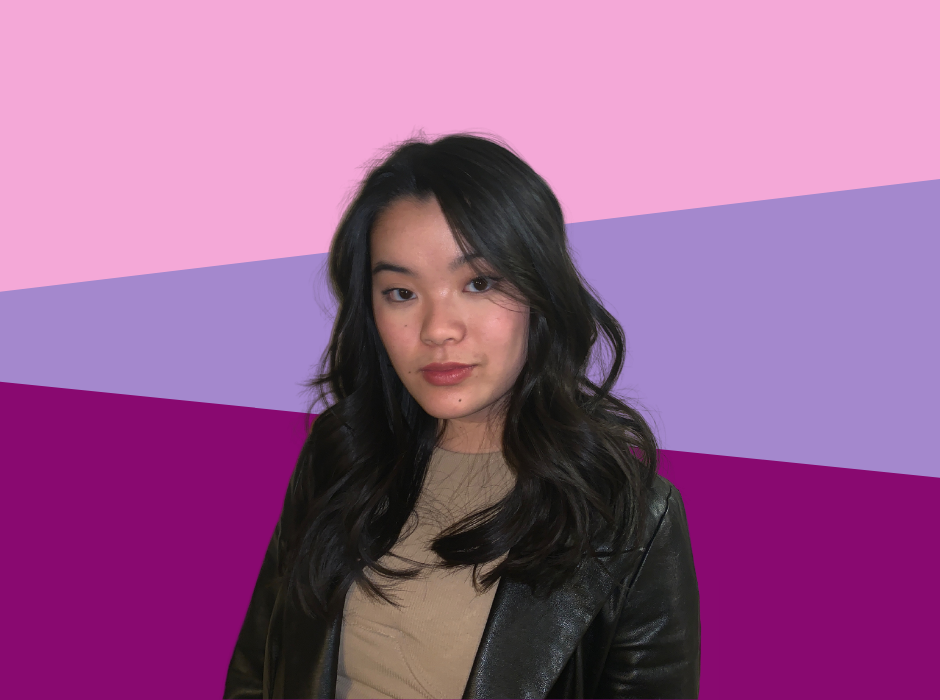I am a child of a country that I have visited once, a language that I do not speak, and a culture from which I feel divorced in every way except one.
I was adopted from China at 10 months old, brought to America, and raised by two White parents in a predominantly White town. Growing up, I was bombarded with ignorant remarks about my identity: “You don’t seem Asian at all,” or “you’re practically White.” The words were hurtful enough, but most damaging of all was the tone of approval with which they were spoken. With each comment, my desperation to maintain my proximity to Whiteness grew. I was a miniature-sized terror during Chinese calligraphy lessons and expressed more interest in the massive Forever21 store than the Terracotta Army during my 3rd grade heritage trip to China. I fled from any meaningful engagement with Chinese culture. Instead, I chose to bury myself in the perceived security of my Americanization.
My teenage years marked my entrance into one of the largest public schools in the country, brimming with students who resembled me. Conformity transformed into curiosity as I began to wonder about the culture on which I had turned my back. As I observed the richness and depth of my friends’ and peers’ relationships with their cultures, I began to believe that the passing years had rendered my own heritage inaccessible. I approached Mandarin with trepidation, utterly resentful of the American accent that tainted my tongue, and eventually abandoned the learning process all together. I shied away from conversations with friends about Chinese traditions or home-cooked meals, humiliated that I could not relate and ashamed that I had not substantively tried.
It is uniquely painful, the realization that you are a guest in your own culture.
All that remained was my physical likeness: This indelibly linked me to my cultural heritage. I could identify with Asian actresses that I saw on the screen, delight in beauty tips suited for the features of my ancestors, and exuberantly rejoice with each stride our country took toward increased Asian representation. In this respect, I did not need a perfect accent or wealth of childhood experiences to validate my Asianness. I had realized ownership of a tie to my background for the first time. It was a small, but powerful, reclamation of my identity.
Then, 6 women of Asian descent were murdered in Atlanta. As details emerged regarding the perpetrator’s alleged sex addiction, and the victims’ faces circulated the internet, I came to the terrifying realization that my physicality — my unimpeded, cherished connection to my heritage — was the target of fetishization and violence.
The Atlanta spa shootings gave shape to the disparate observations I had scatteredly realized throughout my upbringing, but never quite understood. I was flooded with recollections of being described as exotic by adult women, individuals pulling their eyelids in an attempt to replicate my own, and warnings to investigate the dating histories of potential partners (“they might have yellow fever!”); memories of the commodification and objectification of Asian, female bodies. My body.
My experience with the often painful intersection of femininity and Asianness is simply a microcosm of a greater lived-reality. In her paper “White Sexual Imperalism: A Theory of Asian Feminist Jurisprudence,” Sunny Woan, a graduate of Santa Clara Law School, delineates how imperalism, media, and sexism have resulted in Asian women functioning as “objects for western consumption and the satisfaction of western desires.” Subsequent to their objectification is the overarching conception of Asian women as submissive, subservient, and inherently hypersexual.
The experiences of Asian women are indelibly linked with 19th and 20th century imperialism. Perceptions of Asian societies as unsophisticated and inferior by imperialist countries relegated the already dehumanized Asian women to the status of sexual objects. As prostitution centers sprouted around military bases, sexual encounters between US troops and local women were informed by these colonial legacies, which contributed to “sexually denigrating stereotypes” about Asian women becoming prevalent in America. Asian women were thus perceived as salvation from the ambitious, independent feminists of the 20th century. Rather than fighting for sexual liberation and freedom, the Asian woman actualized the male fantasy; her demureness augmented the man’s masculinity, while her implicit sexuality satiated his desire.
This phenomenon manifests itself in the lived realities of Asian women. In the 1970s, the mail-order bride industry gained prominence because American men considered the supposedly docile brides to be alternatives to second-wave feminists. The Asian woman’s assumed perpetual willingness for sex results in her overrepresentation in violent pornography, which scholars have noted contributes to racial violence. Today, 55% of Asian women in the US report intimate physical and/or sexual violence during their lifetime, and Asian women report hate incidents 2.3 times more often than Asian men. I grieve each day for their collective suffering.
How excruciating, for anguish to infuse the only avenue through which I can resonate with my culture. How heartbreaking, for the physical evidence of where I come from to function as the source of my dehumanization.
I have not reconciled the duality of my Asian femininity, and perhaps I never will. However, I refuse to consider my body, gifted by my birth parents and nurtured by my mother and father, a weakness. When I look in the mirror, reflecting back is a mosaic of conversations with my sister about adoption, dreamscapes of my orphanage in Fuling, compassionate whispers from friends who affirm my identity, Chinese New Year potlucks in Canaday, and my mother’s musings about female empowerment.
My Asianness and femininity are defined by everything that the world attempts to claim that they are not. In this divergence, I not only recover my heritage — I find myself.
The original artwork for this article was created by Harvard College student Duncan Glew for the exclusive use of the HPR.
President




